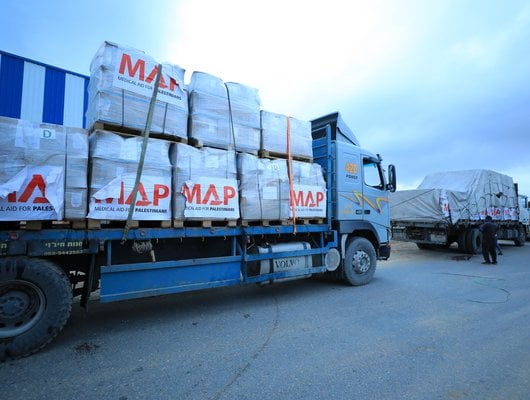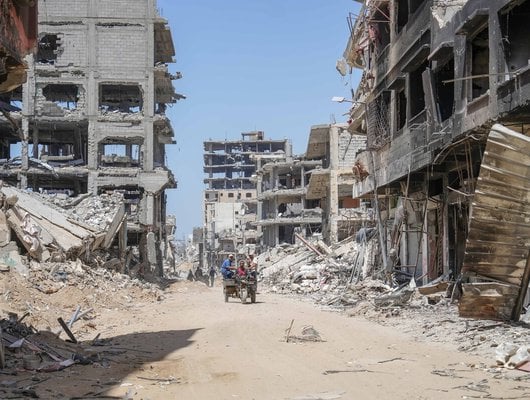Campaigns
We campaign in the UK and internationally in support of Palestinians’ rights to health and dignity. We amplify Palestinian voices, ensuring they are heard at the highest levels. Together, we push for real change and campaign for an end to the barriers Palestinians face to quality healthcare.
And we need your help. You can be a powerful force for change. Every voice, every action, every act of solidarity, brings us closer to a future where every Palestinian has access to life-saving care and the right to live with dignity. It’s time to take action.

Israel’s genocide isn’t over
A ceasefire deal is a glimmer of hope – but Israeli forces are still killing Palestinians, and Gaza’s healthcare system lies in ruins. The UK Government cannot look away.

Stand against Israel's ban on aid organisations
Israel has notified 37 international humanitarian aid organisations, including MAP, that our registration to operate in the occupied Palestinian territory has expired. The UK must demand that Israel immediately reverse this decision and end all barriers to aid.

The UK must ensure a permanent end to Israel’s atrocities
Your MP has a critical role to play in placing pressure on the Prime Minister and Foreign Secretary to do everything in their power to secure a permanent end to Israel’s genocide, hold perpetrators accountable, and finally bring an end to Israel’s illegal occupation. Demand they use their voice.